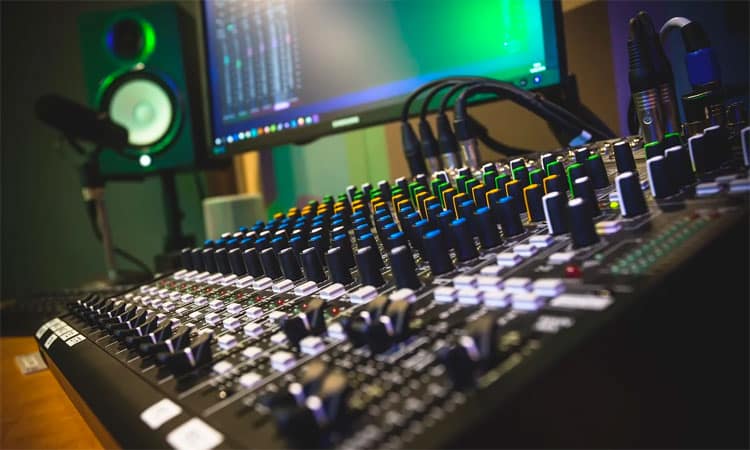Guitar playing has long captivated individuals seeking to express their creativity, embrace a beloved hobby, or even embark on a professional musical journey.
Traditionally, aspiring guitarists have sought guidance through in-person lessons with skilled instructors. However, the advent of the internet and technological advancements has revolutionized the way we acquire knowledge, including learning how to play the guitar.
Online guitar lessons have emerged as a popular alternative, providing convenience, flexibility, and accessibility to aspiring musicians worldwide.
But are these virtual lessons truly effective? Do they measure up to the traditional face-to-face experience?
In this article, we delve into the pros and cons of guitar lessons online, exploring the impact of virtual learning on guitarists of all levels.
But are they worth it?
Online guitar lessons have gained significant popularity in recent years, prompting the question: Are they truly effective?
The answer lies in a careful examination of the benefits and drawbacks of virtual learning in the context of guitar education.
One of the key advantages of online guitar lessons is their convenience.
Learners can access lessons from the comfort of their homes, eliminating the need for travel and scheduling conflicts.
This flexibility allows individuals to fit their guitar practice around their busy lives, making it more feasible for those with limited time or irregular schedules.
Additionally, online guitar lessons offer a wide range of resources and materials.
Instructional videos, interactive exercises, and downloadable materials enhance the learning experience, providing students with valuable tools to reinforce their understanding and practice effectively.
Moreover, online platforms often provide a variety of lesson formats, catering to different learning styles and skill levels.
Accessibility is another noteworthy aspect of online guitar lessons.
Geographical limitations are no longer a barrier, as learners can connect with instructors from around the world.
This enables access to diverse teaching styles, musical genres, and techniques, expanding a student’s musical repertoire and broadening their horizons.
However, it is important to acknowledge the potential drawbacks of online guitar lessons.
One notable concern is the lack of immediate feedback and the physical presence of an instructor.
In traditional face-to-face lessons, instructors can provide real-time guidance, correct posture and technique, and address individual challenges.
Online learners may face difficulties replicating this level of personalized attention and may require additional self-discipline and self-correction.
Technical limitations can also impact the effectiveness of online guitar lessons.
Issues such as internet connectivity, video and audio quality, and latency can interrupt the learning process and hinder effective communication between instructor and student.
Overcoming these challenges often requires reliable equipment and a stable internet connection.
Ultimately, the effectiveness of online guitar lessons depends on various factors, including the dedication and motivation of the learner, the quality of the instructional content, and the ability to adapt to the virtual learning environment.
While online lessons offer convenience, accessibility, and a wealth of resources, they may require additional self-discipline and adaptability compared to traditional face-to-face lessons.
By weighing the pros and cons, prospective guitar learners can make an informed decision about whether online lessons align with their learning style, goals, and preferences.
Final Thoughts
In conclusion, online guitar lessons have proven to be a valuable and effective learning option for aspiring guitarists.
The convenience, flexibility, and accessibility they offer have revolutionized the way people learn to play the guitar.
With a vast array of instructional resources, interactive tools, and access to experienced instructors from around the world, online lessons provide a wealth of opportunities for skill development and musical exploration.
While online guitar lessons offer numerous advantages, it is important to acknowledge their limitations.
The lack of immediate feedback and physical presence of an instructor may require additional self-discipline and self-correction from the learner.
Technical challenges, such as internet connectivity and audio/video quality, can also affect the learning experience. However, with the right mindset, dedication, and adaptation, these challenges can be overcome.
Ultimately, the effectiveness of online guitar lessons depends on the commitment and motivation of the learner.
The availability of online platforms empowers individuals to take control of their learning journey, providing the flexibility to progress at their own pace and explore various musical genres and techniques.
In the evolving landscape of music education, online guitar lessons have emerged as a valuable tool, offering convenience, accessibility, and a wealth of resources.
By leveraging the benefits of virtual learning and supplementing them with dedication and self-discipline, aspiring guitarists can effectively develop their skills and embark on a fulfilling musical journey.
Whether one chooses online lessons or opts for traditional face-to-face instruction, what truly matters is the passion, practice, and perseverance that one brings to the process of learning and mastering the guitar.




